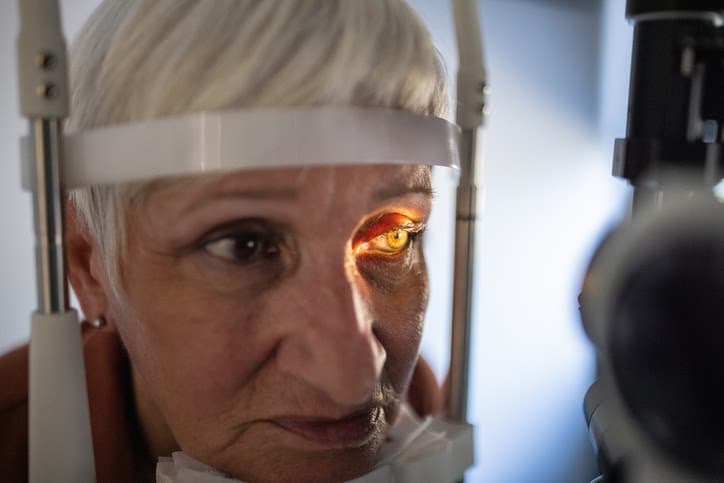
Like the rest of your body, your eyes naturally change throughout your life. Unfortunately, many people are not conscientious about caring for their eyes and often neglect to visit an ophthalmologist for routine eye exams as they get older.
Growing older contributes to a number of eye changes that need to be monitored. These are four of the most common eye conditions that can develop with age:
Cataract. This clouding of the lens usually develops slowly over many years. You may not notice the cloudiness until it blocks your central line of sight and impairs your vision.
Glaucoma. Over time, the anterior chamber in each eye may become shallower in certain people— those who have small eyes and are farsighted, for example. The narrowing can lead to a blockage in the aqueous humor drainage system near the iris. The resulting fluid backup may lead to a sudden rise in pressure inside the eye that damages the optic nerve, a condition known as closed-angle glaucoma. Left untreated, it can cause blindness.
Another form of glaucoma, called open-angle glaucoma, occurs when pressure builds up gradually in the eye because of a different problem: a slower outflow of aqueous humor through the trabecular meshwork. As in closed-angle glaucoma, the resulting buildup of pressure inside the eye can damage the optic nerve, if left untreated, and cause blindness.
Age-related macular degeneration. As the retina ages, it may grow less sensitive to light because of cell loss, a reduced blood supply, or degeneration. The macula is especially prone to deterioration. Age-related macular degeneration is a serious disease that can steal a person’s central vision, making it difficult to read, write, or drive a car.
Diabetic retinopathy. Diabetes is a disease in which elevated blood sugar levels occur because the pancreas doesn’t produce enough insulin or the body’s cells become resistant to insulin. In both cases, sugar builds up in the bloodstream and can damage blood vessels and organs throughout the body— including the eyes.
Diabetic retinopathy happens when blood vessels that feed the retina leak, leading to retinal swelling, or when new blood vessels form, causing bleeding into the retina or retinal detachment. When left untreated over time, this condition can lead to blindness.
For more information about keeping your eyes healthy, read The Aging Eye, a Special Health Report from Harvard Medical School.
Image: miodrag ignjatovic/Getty Images





![Grow 10 Pounds Of Potatoes In Just 30 Days With Plastic Containers [Video]](https://naijatipsland.com/wp-content/uploads/2024/11/466928459_444053232089974_5323815438965424433_n-100x56.jpg)




